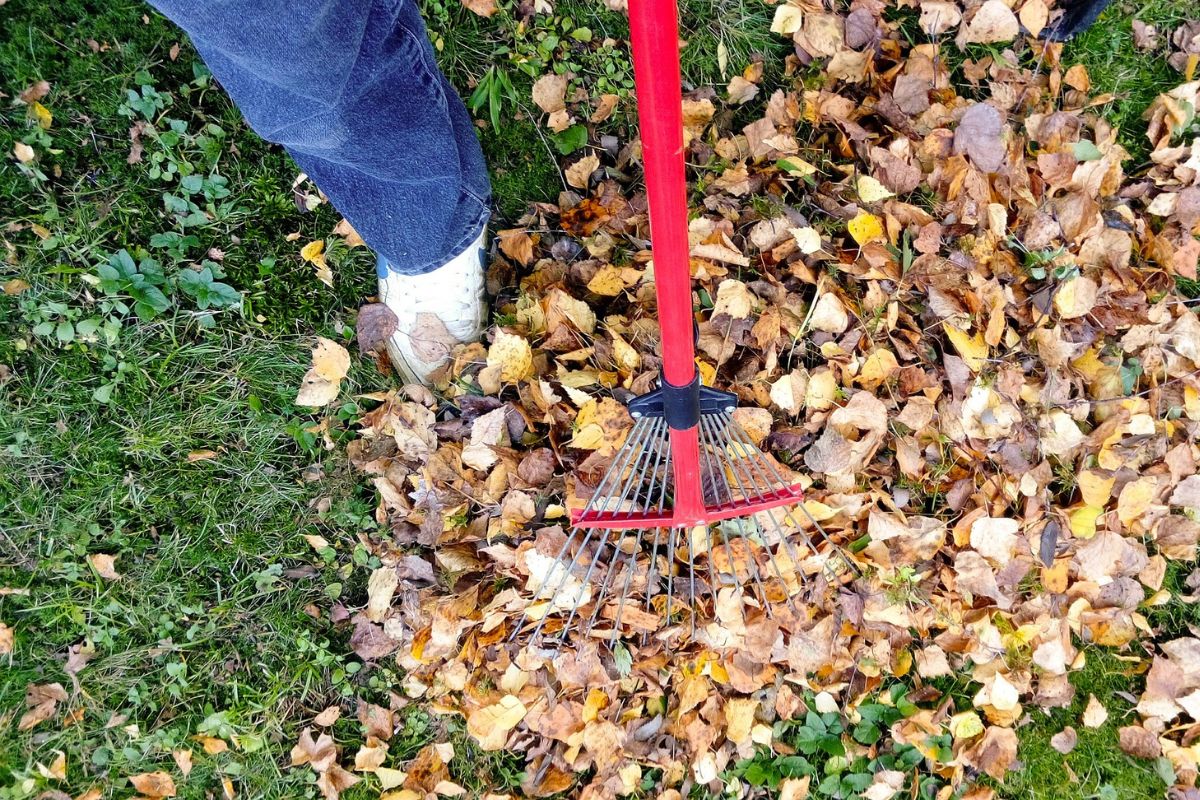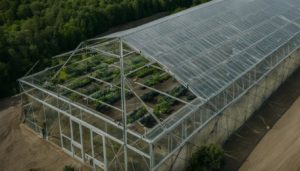Mulching is an important aspect of gardening and landscaping that helps keep plants healthy and looking great. It’s a practice that has been around for centuries, but it still confuses many people about why you should be mulching your lawn/garden in the first place.
But what’s the main reason for mulching?
If you’re curious about this, look no further; join me on this ride to identify what mulching entails and the reasons behind its importance.
So, grab a cup of Joe, sit back, and enjoy reading!
Definition
Mulching is the practice of placing a protective layer of material over soil to improve its composition, water retention, and weed control.
Mulch can range in selection from organic materials such as bark chips, straw, or compost to synthetic products like plastic sheeting.
Depending on what type you choose and how often it’s tended to, mulch can last anywhere from one season up to several years.
Benefits Of Mulching
Mulching has a lot of benefits for your garden, like helping to keep moisture in, smothering weeds and improving your soil. It’s an easy and effective way to keep your garden healthy and growing strong.
Moisture Retention
Mulching is a great way to keep your soil healthy and happy! Not only does it help with soil aeration, weed control, and pest prevention – but it also helps retain moisture.
Moisture retention helps keep your plants hydrated and stops the soil drying out in the sun.
This means that when the summer sun comes out in full force, you won’t have to worry about watering as frequently because the mulch will be helping to keep things moist.
Plus, if you use organic materials like wood chips or bark for your mulch then you’ll even give back some of those vital nutrients that plants need while they’re growing.
It’s a win-win situation all around!
Weed Control
When it comes to weed control, mulching is a great way to keep your garden looking pristine.
Weed control helps to keep pesky weeds from taking over your garden.
Organic materials like wood chips or bark are not only better for the environment, but they can help prevent weeds from sprouting up in unwanted places.
To make sure you’re getting the most out of your mulch, aim for a depth of around two inches and stay away from synthetic options as they don’t provide any nitrogen depletion benefits that organic materials do.
With regular maintenance on your part, mulching will be an effective solution at keeping troublesome weeds at bay!
Soil Improvement
The benefits of mulching don’t stop at weed control – it can also help improve the quality of your soil!
Soil improvement helps your plants get the nutrients they need to thrive.
Not only does mulching help conserve water by keeping the top layer of soil moist, but its organic material encourages aeration and provides valuable nutrients to the ground. This helps create a healthier environment where plants have an easier time growing and thriving in.
Plus, you’ll be doing your part for conservation as using organic materials like wood chips or bark keeps harmful synthetic substances away from nature.
So, if you’re looking for a way to take care of both your garden and our planet, mulching is definitely worth considering!
But what are the different types of mulch? Read on!
Types
There are so many options when it comes to mulching techniques and products that you can use in your garden or yard.
Think about materials like:
- Wood chips
- Straw
- Leaves
You can also find various mulch materials such as:
- Rubber
- Stone
- Grass clippings
- Cocoa shells and even newspaper.
There are also colored mulch varieties that come in browns, reds, blues and greens – there’s something for everyone, irrespective of style and personality.
With all these choices, you can easily customize your outdoor space while providing nutrients back into the soil.
Conclusion
In conclusion, mulching is a great way to keep your plants healthy and happy. It helps the environment by reducing water evaporation, protecting soil from erosion, and providing nutrients for plants. Additionally, it keeps weeds away so that you can enjoy your yard without pesky intruders.
Plus, there are plenty of materials to choose from when looking for the perfect mulch for your garden!
Remember that when using any type of mulch in your garden or landscaping project, safety should always be taken into account. Make sure to research what types of mulches are safe around certain plants before getting started.
And don’t forget to replace old mulch every year or two; it’ll give your garden an extra boost of freshness and nutrition!
With just a little bit of effort each season, you’ll have your lawn bursting with life and color as if by magic – like a fairy tale come true!
Frequently Asked Questions
What Materials Can Be Used As Mulch?
Mulching is like a blanket of protection for your plants, shielding them from disease and retaining moisture. It can be made up of all kinds of organic materials such as wood chips or bark mulch, composted leaves, aged manure, grass clippings, straw – even newspapers!
Mulching can also provide decorative options to enhance the look of your garden while providing an array of benefits including nutrient-rich soil due to composting strategies, successful weed prevention and improved water retention.
How Often Should Mulch Be Replaced?
Mulch is an important part of the landscape design, and how often it needs to be replaced depends on a variety of factors.
Weeding techniques, seasonal variations, soil improvement, and wildlife habitat all play a role in determining when mulch should be refreshed.
Generally speaking, experts recommend replacing your mulch every one to three years, depending on the climate where you live and what type of material you use for your mulch.
Doing this can help keep your garden looking its best by improving soil quality and helping support local wildlife populations.
What Are The Environmental Benefits Of Mulching?
Mulching has become increasingly popular in recent years due to its numerous environmental benefits.
It can help retain moisture and nutrients in the soil, suppress weeds, and even enhance biodiversity – making it a great way to give back to nature!
Moreover, mulch adds an aesthetic appeal to any garden or lawn.
Studies show that one inch of mulched soil can hold up to 20 gallons of water per square foot – meaning you’ll need less water for your plants!
Additionally, when applied correctly, mulch also reduces air temperatures around plant roots by up to five degrees Fahrenheit.
All of these effects combine together like puzzle pieces; each adding something unique yet equally important towards helping the environment.
Are There Any Safety Considerations When Using Mulch?
When using mulch, there are a few safety considerations to keep in mind.
It’s important to use organic material like bark chips for mulching as they provide better weed control and help conserve water.
Inorganic materials (such as stone) can also be used, but it should be mixed with compost to aid pest management and nutrient release.
Additionally, avoid piling the mulch too high—keep it no more than four inches thick—as this could lead to suffocation of plants or cause fungal infections.
With these tips in hand, you’ll have a healthier garden in no time!
What Types Of Plants Benefit Most From Mulching?
Mulching is a great way to give your garden an aesthetic boost, while also providing benefits like water retention and pest control.
Take the case of Joe’s flower bed; he chose to use mulch around his delphiniums in order to keep soil temperature constant and prevent weeds from taking over.
Mulch was just what Joe needed for these plants – it provided all of the necessary nutrients they required without cutting into their growth, resulting in beautiful blooms that will last for years.
In addition, mulch can be used as a natural barrier against pests and disease, making sure your flowers stay healthy and vibrant!
Photo by Greenstock.


